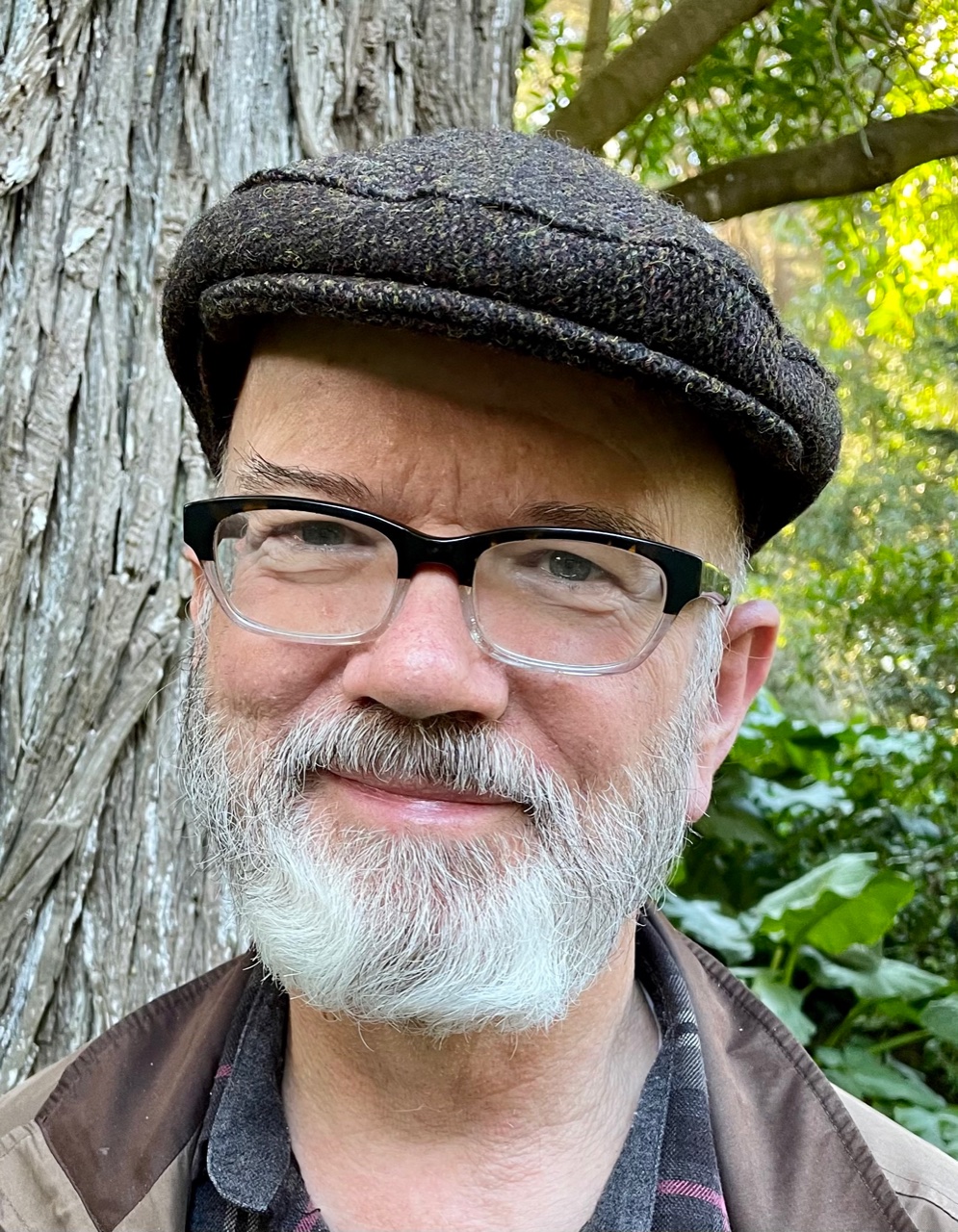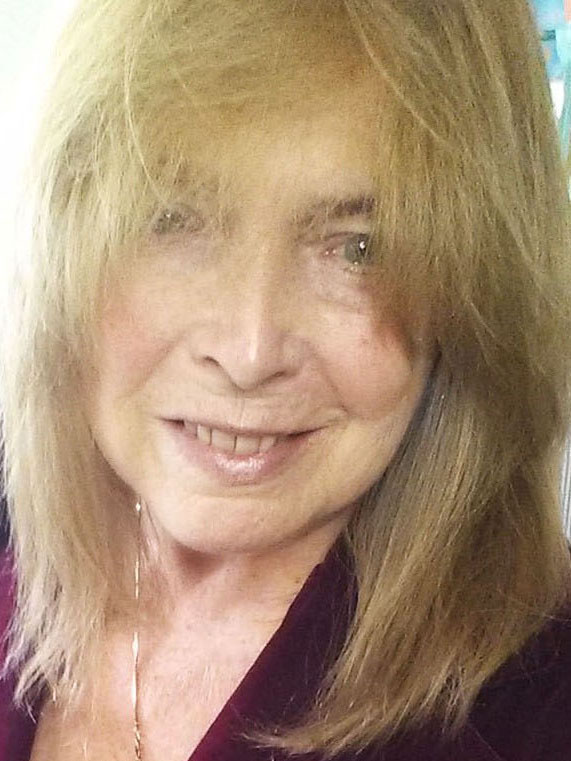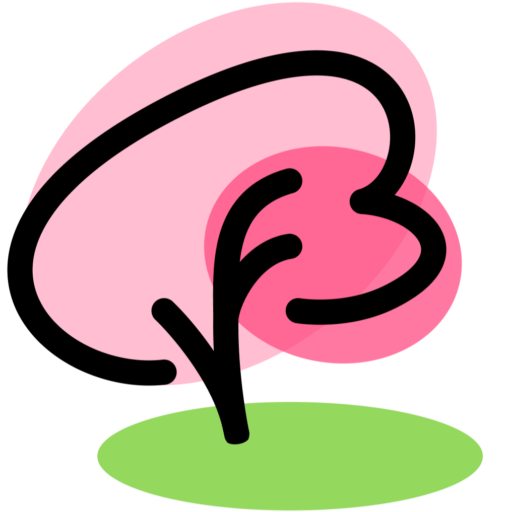2021 Haiku Invitational
For the 2021 VCBF Haiku Invitational 940 poets submitted 1,745 haiku. Blossoms, blooms and falling petals appeared on temple roofs and city streets, in backyards, clutched in the hands of beggars and babies, on the noses of puppies and kittens and floating down rivers. There were poems about love and poems about loss with the pre-dominant theme of hope, which was so refreshing during these times when we could easily succumb to despair. The judges were particularly heartened to read the poems by children—some of their imagery is so unique and expressions most profound! It was a joy to read through and ponder all these poems. Congratulations to the winners. May all those who submit-ted continue to read haiku, to learn, to wonder, to write, to submit your haiku to journals and contests such as this and to share your love of the genre (and of cherry blossoms!) with others.
The following comments on each poem are by 2021 Haiku Invitational judges: Chuck Brickley, Terri L. French, and Claudia Radmore
Vancouver:
for lease
reflected in the storefront
cherry blossoms
Ann Harreby
Coquitlam, British Columbia
A haiku born of, and perfectly illustrating, the Japanese concept ma—the Big Empty filled with Life. The store is vacant, but its front window reflects the blossoms of a sidewalk cherry tree. The previous business may have folded, but one day another will move in with hopes of succeeding. The storefront window is not mentioned, but rather, deftly implied by its action of reflecting the cherry blossoms—another example of ma. (CB)
Many businesses, particularly restaurants, have struggled during the pandemic. Some, unfortunately, have had to close. Out of Business and For Lease signs have appeared in many shop windows. I can’t help but feel sadness for the owners, employees, and even customers who will no longer work at nor enjoy themselves at some of their favorite local establishments. And yet . . . in this same window we see the reflection of cherry blossoms, of springtime, hope, and new beginnings. This poem is full of imagery and emotion. (TF)
How unexpected to see the blossoms, not only in a reflection, but in the reflection of a For Lease sign. A reflection of a reflection. I like this “thinking about thinking,” noticing the moment, noticing the beauty of blossoms though we only have the blossoms for a while, as if we haven’t paid enough rent . . . It is also a store, and it is up to us as viewers to “store” the memory of these last residents of spring. (CR)
British Columbia:
keeping her secret…
a whisper of wind
among the blossoms
Susan Constable
Parksville, British Columbia
A sensual example of the Japanese aesthetic of yugen: what’s left to the imagination is more alluring than what’s clearly seen. If we could hear such a whisper again, even just once, we might be able to catch what her secret is. (CB)
This poem makes me wonder if something happened beneath those blossoms, hmmm . . . maybe something clandestine? In any case, nature is the only witness. Winds can be bold and wild, blowing harshly, but this one, through the blossoms, is soft and gentle, just a whisper, too faint to even discern—a true confidant of secrets that should remain so. The alliteration of s’s accentuates the hushed tone of this poem. (TF)
Here the first line opens to the widest of worlds. What is the secret? Why is it important that it be kept? Has it been whispered to her or is the wind the only way the secret can be shared, as if with the universe? The image of a secret is as if it were a concrete thing loose only among the blossoms. (CR)
Canada:
the foster child’s
backward glance
falling cherry blossoms
Charlotte Hrenchuk
Whitehorse, Yukon
A foster child has been shuttled from one home to another, trying its best to remember what good things have happened along the way, what love has been shared, however briefly. Youth may be on their side, but for how long? A backward glance reveals petals falling from a cherry tree. Spring, inspiring upon its arrival, is already moving on. (CB)
This poem is both sad and hopeful. We do not know the circumstances that placed the child in the foster-care system. We don’t know how old they are or how many homes they have been in. Nor do we know why they are looking back. Is it merely to see the beautiful blossoms falling? Maybe they experienced some love and caring from the foster family. A glance is fleeting, just a moment in time. This child has a whole life ahead of them. (TF)
Aren’t we caught here, by that backward glance, associating it with longing, loss, hope, worry. We get an encapsulated vision of the child’s emotions, how frightened or “unanchored” the child might be, a child with no real home, perhaps leaving one foster home for another, or being taken from a home, becoming a foster child, with the memory of falling blossoms. What associations the child has, or will have, forever perhaps, between being a foster child and the falling blossoms, falling from the parent tree. (CR)
USA:
letting the mask fall
below my nose…
cherry blossoms
Chad Lee Robinson
Pierre, South Dakota
Not a safe thing to do, right? But hey, these are not just any blossoms. They’re cherry blossoms. Sweet, especially when the sun comes out after a shower. The power of nature, the weakness of human nature—simply, effectively captured in one universal moment. (CB)
Just a whiff of the cherry blossoms’ scent to lift the spirits. I like how the poet uses the word letting to imply that lowering the mask was not intentional. Well, of course it was, but who can blame them? Nice use of subtle humour in this poem. (TF)
A person, obviously following precautions and wearing a mask, wants to experience any possible scent the blossoms send out, letting the mask fall, going back to blossoms in a freer, safer time. It could be that as the poet lifts their face to look into the tree, the mask falls and is forgotten. The world, as it is, is temporarily forgotten. (CR)
International:
first blossoms—
the child’s eyes
say it all
Rita Odeh
Haifa, Israel
A child is overcome with a sense of wonder. The observing poet, so moved by the child’s awe, can achieve one of the most difficult tasks in all of literature–to write an exquisitely simple, yet profound haiku. Does the child see the parallel between themself and the blossoms? Or feel the hope and faith that the poet, even in these latter days, feels as witness to this scene? One may as well ask the blossoms and let the pure beauty of the moment answer. (CB)
Oh, what a lovely, heart-warming poem! The simple image of a child taking in blossoms for the first time. The awe, the innocence, the sense of wonder. If only all our blossom viewing could be experienced this way. This poem really does say it all. (TF)
How amenable children are to wonder! Everything is being seen through new eyes, though freshness. We can learn so much if we see the world the way a child first sees or hears the world. (CR)
Youth:
empty playground
fallen cherry petals
on the carousel
Sebastian Ciobica, Age 9
Botosani, Romania
The season’s turning. One day the carousel will be turning too, and the sound of children laughing will fill our hearts with delight once more. But not now. Not for a long time, perhaps, if one follows the current pandemic news. The imagery of this haiku would resonate with our sorrows at the best of times, but in these . . . (CB)
Why is the playground empty? It could merely be spring break, but most likely because the children are home during this pandemic. The trees are empty of blossoms and the playground is empty of children and void of their laughter. Carousels are usually full of children playing together, some riding and some spinning the ride for their friends. But this past year friends have seen each other’s faces only on computer screens. A sad poem and hopefully only a temporary situation. (TF)
Such a direct, spontaneous poem. In the completely objective account of what this poet sees, with no hint of what it has aroused, lies that simple undefinable something that is worth recording. The poem also works considering that the first two lines by themselves are an accurate rendering, the comparison of “children” not there and the disappearance of life in the blossoms. The second and third lines alone work to compare those dying flowers with the life and laughter implicit in the carousel. (CR)
2021 Haiku Invitational Judge Bios:
 |
Chuck Brickley’s collection of haiku, Earthshine (in its fourth printing), won a Touchstone Distinguished Book Award (2017), and honorable mentions in the Haiku Society of America’s Kanterman Book Awards (2018) and the inaugural Marianne Bluger Book Award (2020). One of his haibun was nominated for a Pushcart Prize (2018), another for a Sonders Best Small Fiction Award (2019). Chuck is second vice president for the Haiku Society of America, and a panelist for the Touchstone Award for individual poems. Visit www.chuckbrickley.com.
|
 |
Terri L. French is a writer and editor who currently serves on the Haiku Foundation board of directors. She is also on the editorial team of the online journal, Contemporary Haibun Online. Terri is past southeast regional coordinator of the Haiku Society of America and former editor of Prune Juice journal of senryu and kyoka. Her publishing credits and books may be found at www.terrilfrenchhaiku.com. Now retired, Terri and her husband, Ray, and dog, Chaka, enjoy the nomadic lifestyle of full-time RVers. |
 |
Claudia Coutu Radmore is the author of the haiku collection The Business of Isness, and the tanka collection Fish Spine Picked Clean, as well as several collections of longer poetry. Claudia was the preliminary judge of the League of Canadian Poets’ 2018 haiku contest, and for Collected Haiku, the resulting chapbook. She edited the annual Haiku Canada members’ anthology for several years and coedited, with Marco Fraticelli, its 35th and 40th-anniversary anthologies, Touch of the Moth and Wordless. She is the president of Haiku Canada. |
Other Links:
Programs subject to change.
All event titles are protected trademarks of the Festival

